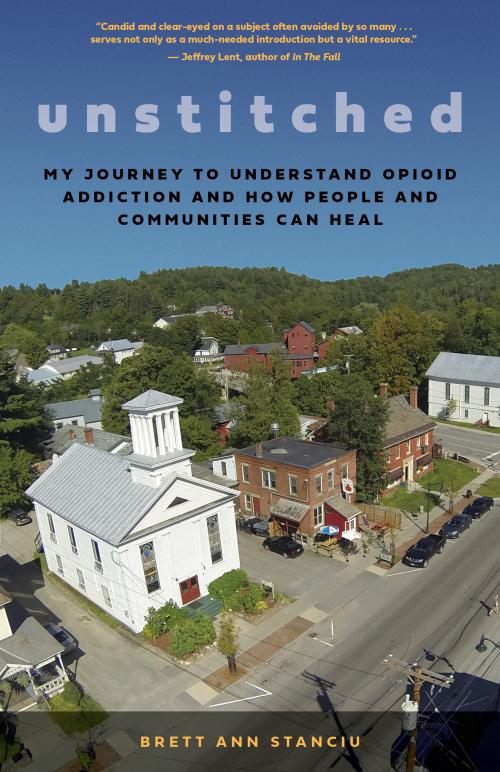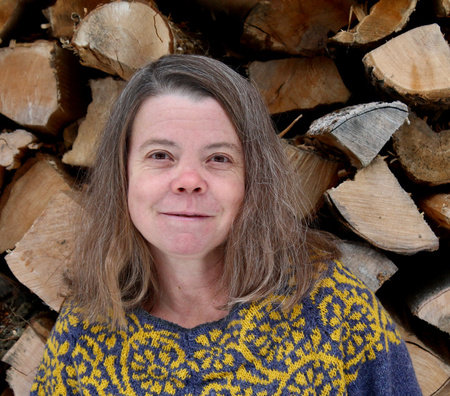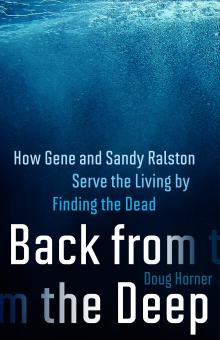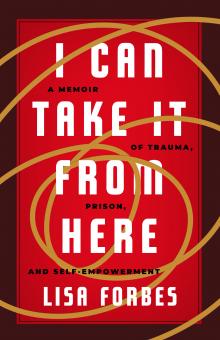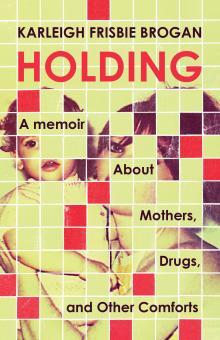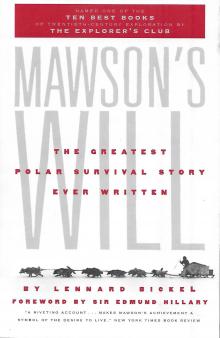Excerpt
o n e
Seeking Shelter
On a cold-throttled Thursday afternoon in January, shortly after the
holidays, library trustee Susan Greene walked in on an intruder in
the Woodbury Library. Minutes before, a neighbor had messaged
Susan after spying a local man named John Baker hurrying around
the back of the library. Though the library was closed, the lights had
blazed on briefly, and she guessed Baker had broken in again. When
Susan rushed through the front door and saw Baker, she grabbed the
desk phone and shouted that she was dialing 911. Baker fled through
the side door. Then Susan called me, the librarian of this one-room
rural Vermont library.
I was home folding laundry. That day, with a forecast high of fourteen
degrees below zero, the superintendent had canceled school.
At that temperature, buses couldn’t run reliably, and some kids who
lived in the village and walked to school lacked winter clothing.
When I hung up the phone, I told my twelve-year-old daughter,
Gabriela, who was rolling out biscuit dough, that I would be back as
soon as I could.
She paused, her floury hands on the marble pin. “You okay?”
“I’ll call. Your sister will be home soon.”
Rushing out of the house, I forgot my gloves. As I drove the seven
minutes from Hardwick, where I live, to Woodbury, I blew hard on
one hand, then the other, to warm my fingers.
Over the past year, John Baker, a rumored heroin user, had repeatedly
broken into the library. I hoped the camera I’d hidden in the
library bookshelves had snapped a photo of him; the state’s attorney
had bungled a previous charge, and I needed evidence to reopen the
case.
When I arrived at the library, Susan’s husband, Randy, and their
two teenagers were standing just inside the front door. Her willowy
hips leaned against my desk. The fluorescent lights glared. With the
heat turned down and the day so cold, clumps of snow tracked in by
our boots hadn’t melted into the hard-worn gray carpet.
“What happened?” I asked.
Each of them stared at different places — Randy at his wife; their
daughter, Rachel, at a spider plant on the windowsill — but avoided
my eyes. No one said anything.
I had known Susan for several years and knew she had a habit of
pausing to stare right or left before she spoke, judicious with her
words.
I repeated, “What happened?”
Randy answered, “The dispatcher on the neighbor’s scanner said
Baker shot himself. The ambulance is on its way.”
“What? John Baker shot himself ?”
Randy shifted his weight from one foot to the other. “That’s what
was called in.”
“But he was just here?”
“He ran home and shot himself.”
Less than half an hour had elapsed since Susan called me. I pulled
my hat off my head and turned it around and around in my hands.
My daughter had crocheted it from chunky turquoise yarn. “He shot
himself over such a minor crime?”
Randy tugged on his insulated leather gloves. “Come on, kids.
We’re going home.”
“Dad,” his son, Ben, protested.
“I said, we’re going home. Don’t argue.” He opened the door and
held it while the teens walked out in the dark.
Shivering in the chilly room, I turned on the heater. Without
removing my coat, I pulled up a chair on the public’s side of my
desk.
Susan hunched in my usual chair, facing the dark computer screen.
“I doubt the state police will come here,” she said. “They’ll be too
busy at his house. I’ll walk down to the fire department later and ask
what happened. You don’t need to stay. I’ll call you later.”
On the desk between us, a facedown phone buzzed.
I unzipped my coat. “I’m staying.” The phone vibrated again. “Do
you want to answer that? Maybe it’s your family.”
“It’s his. He dropped it in the snow when he ran out. I followed
him — I was yelling — and found it.”
The phone lay on my desk beside a bright orange origami box a
boy had folded for me. Inside the box were secreted a large green
paper clip, a plastic pig, and a purple yarn bracelet a child had made
and forgotten. We waited in the quiet without speaking, the phone
sporadically buzzing.
The heater whooshed on. I walked around and watered the plants.
Pausing at the window, I cupped my hands around my eyes near the
cold glass, peering into the darkness, and saw nothing but the reflection
of my two eyes staring back at me.
Nearly two hours later, Rachel returned with news. The Bakers
live on one side of Route 14, and the Greenes live on the other. “The
ambulance left their house, and the chief ’s car is back at the station.”
Susan stood up. “Did you hear? Is he alive?”
“I don’t know. Let’s go ask the chief.”
We zipped up our coats. In the darkness, I fumbled sticking the
key in the door lock. The exterior library light had blown out before
Christmas, and I hadn’t replaced it. We walked in silence to the fire
department, a short distance down a slight hill. I cinched my scarf
tighter around my face. Clouds screened the stars and the moon. At
the fire department, we filed in the back door, where we found the
chief, Paul Cerutti, sitting at a desk so large it dwarfed him, filling
out paperwork.
He set down his pen. When not serving as the volunteer fire chief,
Cerutti works as a fire safety inspector.
Susan asked, “Is he . . . ?”
“It’s not your fault,” Cerutti answered calmly.
“He’s dead?”
“He’s dead all right. Did it in the room where his parents keep
firewood. My guys are cleaning up.”
Susan shuddered. I was afraid she would fall over. Rachel and I
wrapped our arms around her.
“Go home,” Cerutti said. “The state police don’t need anything
from you. You’ve done nothing wrong. Listen, I’ve spent years trying
to help people. The problem, mostly, is the people.”
Susan stepped out of our arms and placed Baker’s phone on the
edge of the chief ’s desk. “It’s his. I don’t know what to do with it.”
“I’ll get it to where it needs to go.” Cerutti leaned back in his chair
and studied Susan. “Don’t beat yourself up. If you need help getting
over this, just ask. No shame there. Sometimes the hardest thing is
to ask for help when you need it.”
On the verge of crying, she crossed her arms over her chest and
headed for the door. Following her and Rachel, I said over my shoulder,
“Thank you.”
Without standing, Cerutti opened his desk drawer, deposited
Baker’s phone inside, and slid the drawer shut. “I mean it about help.
We’ve all been there.”
Outside, we paused under the upside-down luminous cone of the
door lamp. In our bulky jackets, the three of us embraced. Then
Susan drew back and told her daughter, “Let’s go home.” They
crossed Route 14 and disappeared into their clapboard house.
I walked back to my car, hands jammed in my coat pockets. I
passed the unlit Episcopal church, my bootheels striking the icy
road, the sole sound in the night. Above my scarf, the cold clawed at
my eyes and forehead.
I drove home, my headlights splitting the darkness as I left the
village and headed down the mountain pass. On this frigidly hostile
night, the roads were empty. After I pulled into our driveway, I sat for
a few moments. The cold crept into my lap and slunk beneath the
collar of my coat. I imagined Susan standing outside the library,
shouting, watching Baker run away, his phone falling from his pocket.
Wait, I thought. But it was too late.

